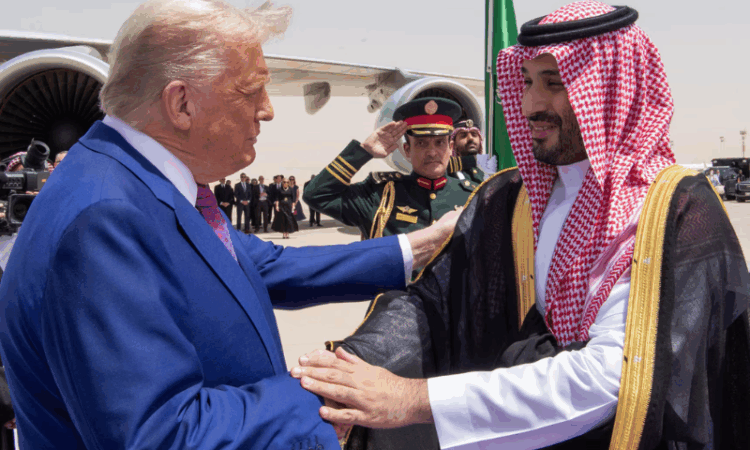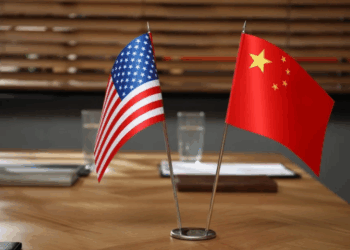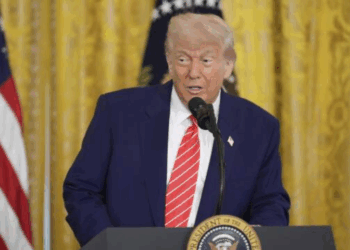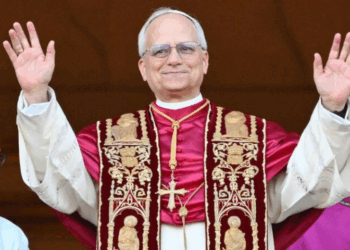Riyadh, May 13, 2025: U.S. President Donald Trump landed in Riyadh on Tuesday, kicking off a high-stakes Middle East tour focused on economic diplomacy, even as the wars in Gaza and Ukraine cast a long shadow over his visit.
Trump’s itinerary includes Saudi Arabia, Qatar, and the United Arab Emirates, where he is expected to lead discussions on investment and regional cooperation. The trip opens with a Saudi state visit, a Gulf Cooperation Council summit, and a U.S.-Saudi business forum featuring top American executives.
“It’s business, business, business,” said Aaron David Miller, a senior fellow at the Carnegie Endowment for International Peace, describing the visit’s economic thrust. A White House official echoed this, emphasizing that regional stability directly supports U.S. prosperity and security.
The visit also coincides with expanding Trump Organization business interests in the region. A Trump-branded golf course deal was recently finalized near Doha in partnership with a Saudi firm — raising renewed scrutiny over potential conflicts of interest between Trump’s public office and private ventures.
Controversy has also followed Trump’s trip in the form of a proposed $400 million luxury aircraft “gift” from the Qatari royal family. Critics warn the offer could violate the U.S. Constitution’s emoluments clause. Trump defended the gift as a symbolic gesture and claimed the plane would eventually go to his presidential library. “I would never turn down that kind of an offer,” he told reporters. “But I wouldn’t be using it.”
Accompanying Trump are Defense Secretary Pete Hegseth, Commerce Secretary Howard Lutnick, and senior White House officials. In Qatar, Trump is scheduled to address American troops at Al Udeid Air Base and meet with Qatari leaders.
Trump announced the release of American hostage Edan Alexander from Hamas captivity ahead of his departure and expressed hope that further releases could be secured during his trip.
Despite his ambition to portray himself as a global peacemaker, major geopolitical tensions remain. The war in Gaza has derailed momentum for the Abraham Accords — Trump’s landmark initiative to normalize relations between Israel and Arab nations. Saudi Arabia, while a key player, has reiterated that diplomatic recognition of Israel is contingent upon a viable Palestinian state.
Unlike his first term, this trip notably excludes a visit to Israel — signaling the diplomatic complexities now at play.
“There are real opportunities in this moment that past presidents didn’t have,” said Miller, pointing to unresolved conflicts involving Iran and the Palestinians. “But whether Trump can seize them remains to be seen.”
On Ukraine, Trump continues to call for a quick resolution to the war, though his promises to end the conflict have yet to materialize. He hinted at a possible trip to Turkey for a proposed Thursday summit between Ukrainian President Volodymyr Zelenskyy and Russian President Vladimir Putin. “I was thinking about actually flying over there,” Trump said. “If I thought it would be helpful.”
As Trump seeks billion-dollar deals in the Gulf, critics warn that his blending of diplomacy and personal business risks undermining U.S. interests. Still, the former real estate mogul turned president remains confident that dealmaking — and his personal brand of diplomacy — can deliver results on both economic and political fronts.







